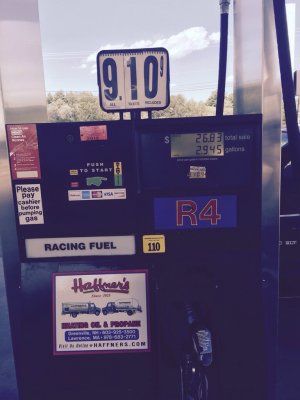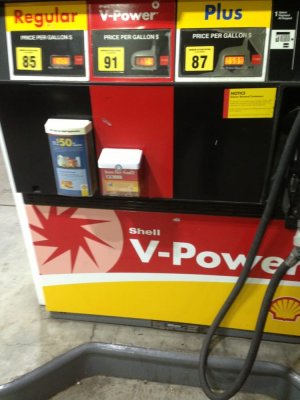This is one of the better explanations I have seen on this post regarding octane levels. Yes, increased compression will cause more heat and can cause pre-detonation which can be countered with higher octane fuel. The biggest take away is that generally by increasing compression you can increase power, and that increased compression requires higher octane fuel....but that is only if the engine is designed/calibrated/tuned to require it. If the compression and ignition systems are designed to run on 87 octane than running higher octane does absolutely nothing. Basically if the engine is tuned to run on 87 octane it doesn't magically adjust compression and timing if you put 89 or higher octane fuel in it. I would speculate the entire "89 recommend, 87 acceptable" could be based on tuning the engine for optimal performance on 89 octane but if the sensors detect any pre-detonation (knock) it backs the timing off slightly which would lead to ever so slightly less performance. Now let's put that in perspective as the difference between 87 and 89 octane fuel is very small (just over 2% difference) so not like there would be some huge difference in performance. I'm not a fuel expert but would guess the variation between brands and loads of 87 and 89 octane fuel means there is some overlap.....meaning some fuel advertised as 87 has as high, or higher, true octane when compared to some of the advertised 89 octane fuel. Again, this is speculation but from work experience this would not surprise me at all. The best analogy would be if you have a candle burning and you dump a 16 oz. glass of water (i.e. 87 octane) on it which puts the flame completely out. You relight the candle and then dump a 18 oz. glass of water (i.e. 89 octane)...and of course the flame goes completely out. Now you jump on the internet and tell everybody that the 18 oz. glass of water is obviously better. Well, is 18 oz. of water really better than only 16 oz. of water in this case? Now the scenario may be that every once in awhile 16 oz. doesn't completely put out the flame and you need that extra 2 oz.
Now the other part of the topic is the entire MDS and "safer alternative" thought. I'm not really sure the 89 octane recommendation has anything to do with MDS. Where exactly did this idea come from? Can anybody point me in the direction of a true technical document or official Ram Truck communication stating octane level and MDS is related in anyway, or that higher octane is "safer"? Honestly not trying to be sarcastic with that question as I would like to know if this whole theory comes from anything other than some random poster's speculations or theory at some point in time. Maybe I'm wrong (according to my wife I'm wrong most of the time....).



